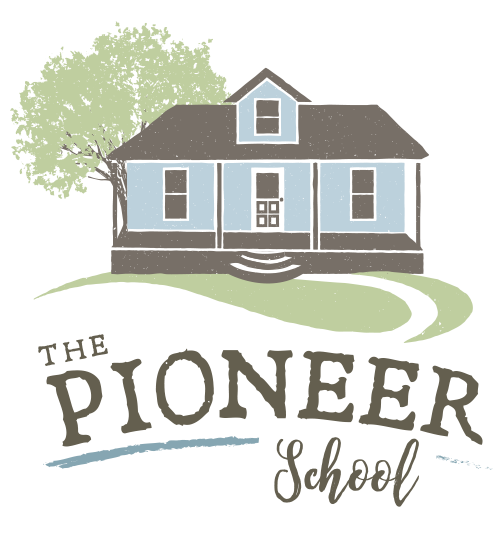Frequently Asked Questions
What is different about your model?
Our program honors adolescence as a unique period for both physical and social/emotional growth. Coursework is engaging, collaborative, and project-based with unique enrichment offerings. Strong partnerships with our families ensure best student outcomes. A culture of kindness and respect is the foundation upon which Pioneer operates.
What is a typical day like?
The Pioneer day begins with an all-school Assembly where we share news and information, worries and gratitude, discuss a ‘thought for the week’ and ‘composer of the week,’ do meditation and stretching, and sometimes go outside. Students then go to their first two classes of the day, followed by an outdoor break and snack-time. Afterwards, there is another work block leading up to lunch and recess. In the afternoon, students take part in Pioneer enrichment classes and Flagship programs.
What is the school media/social media policy?
Student phones are placed in a tech bin for the entire school day. The Pioneer School prefers that if screen time is allowed at home it be kept to a minimum, age-appropriate, and closely monitored. Social media accounts are strongly discouraged for children at this age.
How do students transition to high school?
In St. Johns County, high school choices include homeschool, private Catholic High School, and the public high schools, which offer an array of career academies and programs of choice, including AICE/IB, and the St. Johns County Center for the Arts at St. Augustine High School. More information about county high school programs can be found here: https://cte.stjohns.k12.fl.us/
The Pioneer School intentionally prepares its students both academically and socially to be successful in high school and our students are well-regarded by high school teachers and staff.
How are students with learning needs/differences served?
Applicants for admission with a diagnosed learning disability and/or a current IEP or 504 Plan will be evaluated on a case-by-case basis to determine if The Pioneer School is able to serve and support the student to the level at which they need to thrive and flourish. All new students take a diagnostic test prior to admission to assess grade level in reading and math.
Differentiated instruction and leveled learning groups allow for gifted students to take their studies to an advanced level. There are also opportunities for gifted learners to assume leadership roles within the school, take part in extracurricular activities, and enroll in high school courses.
What does testing look like at The Pioneer School?
Students may be tested in various formats (i.e. presentation, oral exam, written test with multiple choice and short answer questions) at the end of a unit in a course. Placement and/or progress monitoring testing in reading and math may be administered throughout the year to inform teaching practices, but we do not ‘teach to’ any tests and these progress monitoring assessments are not part of the student’s course grade. All students on the FTC or FES-EO scholarship are required by the state to take a norm-referenced test at the end of each year. We utilize the Iowa Test of Basic Skills.
Follow The Pioneer School!
Let's Learn and Grow
TOGETHER
Complete the form below to get in touch with an administrator from The Pioneer School!
School Hours
Weekdays
7:40 a.m. – 3:15 p.m.
Social
Contact
Phone
(904) 209-5891
Address
2299 Rolling Hills Dr., St. Augustine, 32086
All content © copyright 2024 The Pioneer School 501(c)3 Non-Profit Organization
The Pioneer School is non-sectarian. We expect all students, faculty, and members of the school community to respect the personal beliefs and convictions of others, knowing that they may be very different from their own.
All employees and agents of a public school district, charter school, or private school have an obligation and legal responsibility to report misconduct by instructional personnel and school administrators which affects the health, safety, or welfare of a student. Failure to report misconduct may result in penalties up to termination of employment and revocation of an educator’s certificate. Misconduct includes obscene language, drug and alcohol use, disparaging comments, prejudice or bigotry, sexual innuendo, cheating or testing violations, physical aggression, and accepting or offering favors.
Reports of misconduct of employees should be made to Cristina Pope, [email protected][email protected]
Reports of misconduct committed by administrators should be made to Board President Gart Davis, [email protected].
